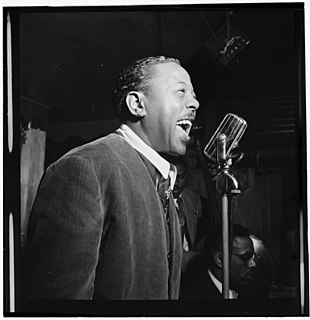A Quote by Roy Eldridge
I was a young cat, and I was very fast, but I wasn't telling no kind of story.
Related Quotes
The ‘experimental’ writer, then, is simply following the story’s commands to the best of his human ability. The writer is not the story, the story is the story. See? Sometimes this is very hard to accept and sometimes too easy. On the one hand, there’s the writer who can’t face his fate: that the telling of a story has nothing at all to do with him; on the other hand, there’s the one who faces it too well: that the telling of the story has nothing at all to do with him
I think that when I'm telling a story, I'm doing the best I can to tell the story as fully as I can, and if there are various fractures that happen in the story, then that's just the very thing that the story is as opposed to my looking for avenues of difference in one story. They just really do exist. For me, anyway.
I think that people have to have a story. When you tell a story, most people are not good storytellers because they think it's about them. You have to make your story, whatever story it is you're telling, their story. So you have to get good at telling a story so they can identify themselves in your story.
People in Israel would write in a high register, they wouldn't write colloquial speech. I do a special take on colloquial speech. When I started writing, I thought [the language] was telling the story of this country: old people in a young nation, very religious, very conservative, very tight-assed, but also very anarchistic, very open-minded. It's all in the language, and that's one thing that doesn't translate.
The radical is simply being given more room in the mainstream. And I think young people - I'm talking about the very young millennials - they are bored by so much so fast and have such fast big brains, that they won't digest lazy uninteresting work in the way my generation might have. This is a great opportunity for those on the fringe to be less on the fringe perhaps.



































